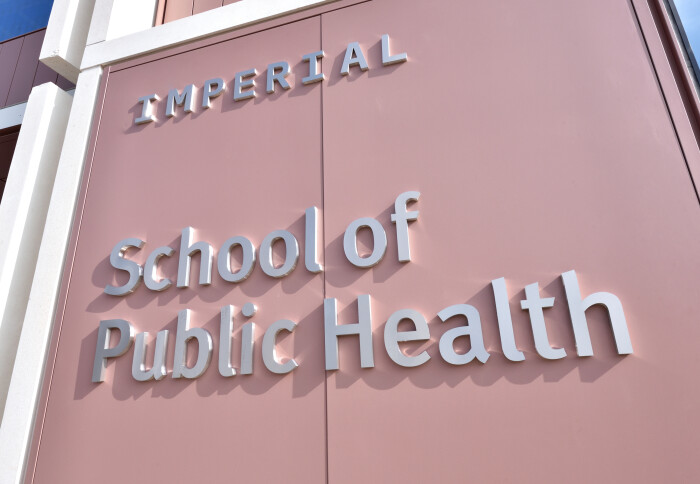Teaching tools, AI health checks and best PhD thesis: News from Imperial

Here’s a batch of fresh news and announcements from across Imperial.
AI can spot inherited condition
About one in 300 people in the UK has familial hypercholesterolaemia (FH), an inherited condition that means their cholesterol levels are higher than normal from birth. It puts people at high risk of early heart disease, but most people with FH don't know they have it.
Researchers at Imperial’s School of Public Health have devised a machine learning model that can identify individuals with a genetic variant causing FH, faster and more accurately than existing screening pathways. Individuals flagged by the AI model could be prioritised for confirmatory genetic testing, lowering the overall cost of genetic testing for this condition.
 Christophe Stevens, a PhD student and software engineer at Imperial’s School of Public Health, who led the project, said: “Implementing our model within the UK’s existing system of electronic health records could not only save millions of tests, but easily identify more individuals with familial hypercholesterolemia.”
Christophe Stevens, a PhD student and software engineer at Imperial’s School of Public Health, who led the project, said: “Implementing our model within the UK’s existing system of electronic health records could not only save millions of tests, but easily identify more individuals with familial hypercholesterolemia.”
For more, see the paper in the Journal of the American Heart Association.
Global Teaching Tools
International collaboration and teaching skills are increasingly important attributes for graduate students globally. The Global Teaching Tools project, initiated and led by Dr Marieke Peuscher from Imperial’s Faculty of Medicine, aims to engage students and staff to work as partners in the creation of inclusive, online teaching activities suitable for global delivery.
 In collaboration with Makerere University in Uganda and University of the Witwatersrand in South Africa, 30 MSc and PhD students worked in international teams, while receiving training in science communication, digital technologies and global partnerships.
In collaboration with Makerere University in Uganda and University of the Witwatersrand in South Africa, 30 MSc and PhD students worked in international teams, while receiving training in science communication, digital technologies and global partnerships.
The project partnered with TReND in Africa to implement newly created teaching material, and was funded by the ARUA – Imperial Education Seed Fund. ARUA is an alliance of 16 top research-intensive universities across Sub Saharan Africa, which focuses on collaborative local research to solve Africa’s development problems.
The joint seed fund promotes and supports early-stage collaboration in projects that combine expertise and efforts across Imperial and ARUA, to jointly develop new teaching, learning and student experience opportunities.
Best European biomechanics thesis
Dr Tian Yuan from our Department of Mechanical Engineering has won a European award for best thesis. His thesis was selected from 14 nominees in the 2024 competition for the European Society of Biomechanics (ESB) Best Doctoral Thesis Award in Biomechanics.
As well as winning a €2,000 honorarium, Tian was invited to deliver a keynote lecture at last week's ESB congress 2024 in Edinburgh, where he also received his certificate.
Dr Yuan’s PhD thesis titled “A Mathematical Framework for Mechanically Controlled Brain Drug Delivery” establishes a modelling platform capable of precisely predicting drug delivery within the brain. This work, supervised by Professor Daniele Dini in our Department of Mechanical Engineering as part of the €8.3M EDEN2020 project, will enhance pre-operative planning in the treatment of brain disease.
Tian’s PhD research also won the Dr Ashraf Ben El-Shanawany Memorial Prize 2022, which is awarded to the best current PhD student in Mechanical Engineering at Imperial.
Professor Ara Darzi to lead NHS review
 The new UK Government has called for an independent investigation into the state of the NHS, headed up by Imperial’s Professor Lord Ara Darzi.
The new UK Government has called for an independent investigation into the state of the NHS, headed up by Imperial’s Professor Lord Ara Darzi.
Health Secretary Wes Streeting said the “raw and honest” assessment will “deliver the hard truths of the challenges ahead”, with findings feeding into the government’s 10-year plan for the health service.
The review will be a rapid piece of work carried out over the Summer, with findings expected to be delivered in September.
Commenting on the announcement, Lord Darzi said: “My work will analyse the evidence to understand where we are today—and how we got to here—so that the health service can move forward. This is an important step to reestablishing quality of care as the organising principle of the NHS.”
Article text (excluding photos or graphics) © Imperial College London.
Photos and graphics subject to third party copyright used with permission or © Imperial College London.
Reporter
Corinne Farrell
Communications Division
Samantha Rey
Communications Division
Eleanor Green
Communications Division